
Why Do Democrats Want More Police in Schools? Why Do Democrats Want More Police in Schools?
It's the wrong response to incidents like Newtown.
Jan 11, 2013 / Lori Bezahler

How About Gun Control for the Pentagon? How About Gun Control for the Pentagon?
For all the droning on about US gun violence, it would be good to hear someone drone on just a bit about US drones.
Jan 11, 2013 / Laura Flanders

The Twisted History—and Future—of Gun Control The Twisted History—and Future—of Gun Control
Rick Perlstein joins Bryce Covert and George Zornick to explore the serpentine shifts and strange bedfellows of gun control politics.
Jan 11, 2013 / The Nation
Dear NRA: Stop Undermining the ATT Dear NRA: Stop Undermining the ATT
Implore the NRA to stop its campaign of lies about the ATT, stop interfering in US foreign policy and stop helping human rights abusers overseas get weapons.
Jan 10, 2013 / Peter Rothberg

Katrina vanden Heuvel: If Congress Won’t Move, Take Executive Action Against Gun Violence Katrina vanden Heuvel: If Congress Won’t Move, Take Executive Action Against Gun Violence
With the public approval of the NRA falling, Biden and Obama must push forward on gun control now.
Jan 10, 2013 / Katrina vanden Heuvel
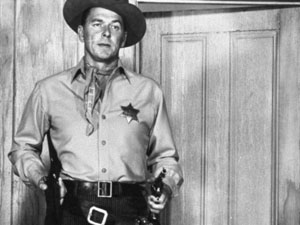
How the NRA Became an Organization for Aspiring Vigilantes (Part 2) How the NRA Became an Organization for Aspiring Vigilantes (Part 2)
Ronald Reagan was an early adopter of, and key propagandist for, gun culture's vigilante turn.
Jan 10, 2013 / Rick Perlstein
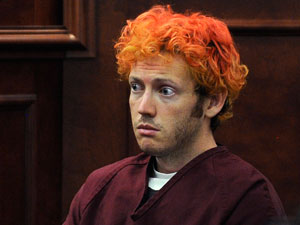
Three Ways Sensible Gun Control Could Have Prevented Aurora Shootings Three Ways Sensible Gun Control Could Have Prevented Aurora Shootings
Details emerging this week in court about July’s mass shooting show multiple ways the tragedy could have been averted.
Jan 9, 2013 / George Zornick
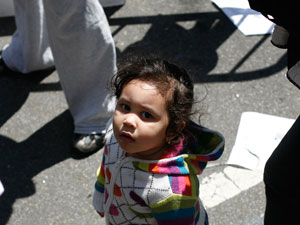
Suffer the Children Suffer the Children
Reuters/Shannon Stapleton The day after Barack Obama won the 2008 South Carolina primary, an elderly white woman tendered words of affection to my 11-month-old son. I smiled, but was thinking, Wait until he’s 15, lady, and you’ll be crossing the road to avoid him. There can be few less generous responses to an expression of human kindness. For all I knew, she could have been one of the 10 percent of white female Democratic primary voters in the state who backed Obama, some of whom had chanted “Race Doesn’t Matter” at his victory celebrations the night before. And even if she wasn’t, odds don’t justify prejudice; they simply compound it. Nonetheless, through those earlier years of parenting I would often wonder, as the cooing started, how a world so enthralled by this black baby could create a system so likely to jail or kill him as an adult. As cynical as my response may have been, it was not without foundation. For there is something about children that can, if only momentarily, unlock an aspect of people’s humanity and, therefore, progressive political potential that would otherwise remain inaccessible. A child’s presence, and fate, can make hardened positions soften and hot potatoes cool. Take gun control. On the day registration opened at the 2012 National Rifle Association convention, the face of George Zimmerman—Trayvon Martin’s killer—peered from every newsstand following his arrest. But the prospect of gun control seemed as remote as ever. The July day a gunman sprayed a movie theater in Aurora, Colorado, with gunfire, killing twelve people and injuring fifty-eight, Barack Obama said, “There are going to be other days for politics. This is…a day for prayer and reflection.” In the months of electoral politics that ensued, the day when the candidates would seriously discuss gun control never arrived. It would take a shooter walking into an elementary school in Newtown, Connecticut, and killing twenty children and six adults and injuring two more before the nation’s political class became sufficiently emboldened to take on gun manufacturers and their advocates. It was as though the country just couldn’t see the problem clearly enough until a large number of children had suffered. “Seeing the massacre of so many innocent children, it’s changed, it’s changed America,” said West Virginia’s Democratic senator, Joe Manchin. “We’ve never seen this happen.” The British hacking scandal involving Rupert Murdoch’s News International revealed a similar tipping point. For several years a range of celebrities, royal figures and politicians claimed their phones had been hacked by the News of the World tabloid. The paper’s royal editor and a private investigator were convicted and imprisoned. Some prominent figures settled out of court. Murdoch looked like he would tough it out. Then came news that the paper had hacked into the phone messages of Milly Dowler, a 13-year-old girl who had gone missing and, it later turned out, had been murdered. Before the week was out, Murdoch announced the closing of Britain’s oldest and most profitable weekly newspaper. Within ten days, Prime Minister David Cameron launched an independent public inquiry into an issue he had previously deemed insignificant. Once again, it took childhood to force a longstanding, and apparently chronic, problem into a crisis worth engaging. This is not to suggest that children should not constitute a special protected category. As minors, they are the most vulnerable and the most in need of protection, both by and from their parents and the state. The fact that they are children means they have had no say in how the world they live in has been constructed or what the ground rules are. There is pathos in their pain and thus more intense outrage at those who would torment, harm or exploit them. Indeed, when one sees the reflexive empathy in response to children’s suffering one cannot but hope that it will be exported to the drone victims in Pakistan and the children bombed in Gaza, triggering a breakthrough in foreign policy. But there is something about a culture—in the West, not just the United States—where children must be imperiled in order to take overdue action that betrays a lack of political courage and imagination. Does it take such a leap of logic to grasp that adults who are shot or whose phones are hacked were once infants themselves, that many of them may have children of their own, or that these issues and many more have an impact on children even when they are not immediately affected? To be raised in a society where phones may be hacked and people may be shot is to be raised with a diminished sense of your own humanity. This is not a partisan point, although those who are passionate about the rights of the unborn while seeking to deny food stamps, healthcare and education for the newborn and young deserve particular contempt. Arguably, if it takes children’s suffering to get things moving, then at least something positive can emerge from tragedy. The Obama administration is reportedly acting swiftly to impose some kind of gun regulation before the horror of the Newtown shootings fades from public memory. But the truth is that there is nothing swift about it. Had they been swift, their actions might have prevented the tragedy rather than been prompted by it. The reason it’s a bad idea to have assault weapons freely available is not because they can kill children. It’s because they can kill lots of people quickly, including children. The reason phone hacking is a bad idea is not because it hurts children. It is because it invades privacy, including that of children. If these calamities have to be visited on children before they can be addressed, we should at least drop the pretense that we are doing it for the children. For if we have to wait until children are directly and adversely affected before we act, then we seek not to protect them, but to put them in harm’s way. Gary Younge’s last column was about “The Irony of Right-Wing Secessionist Fantasies."
Jan 9, 2013 / Column / Gary Younge
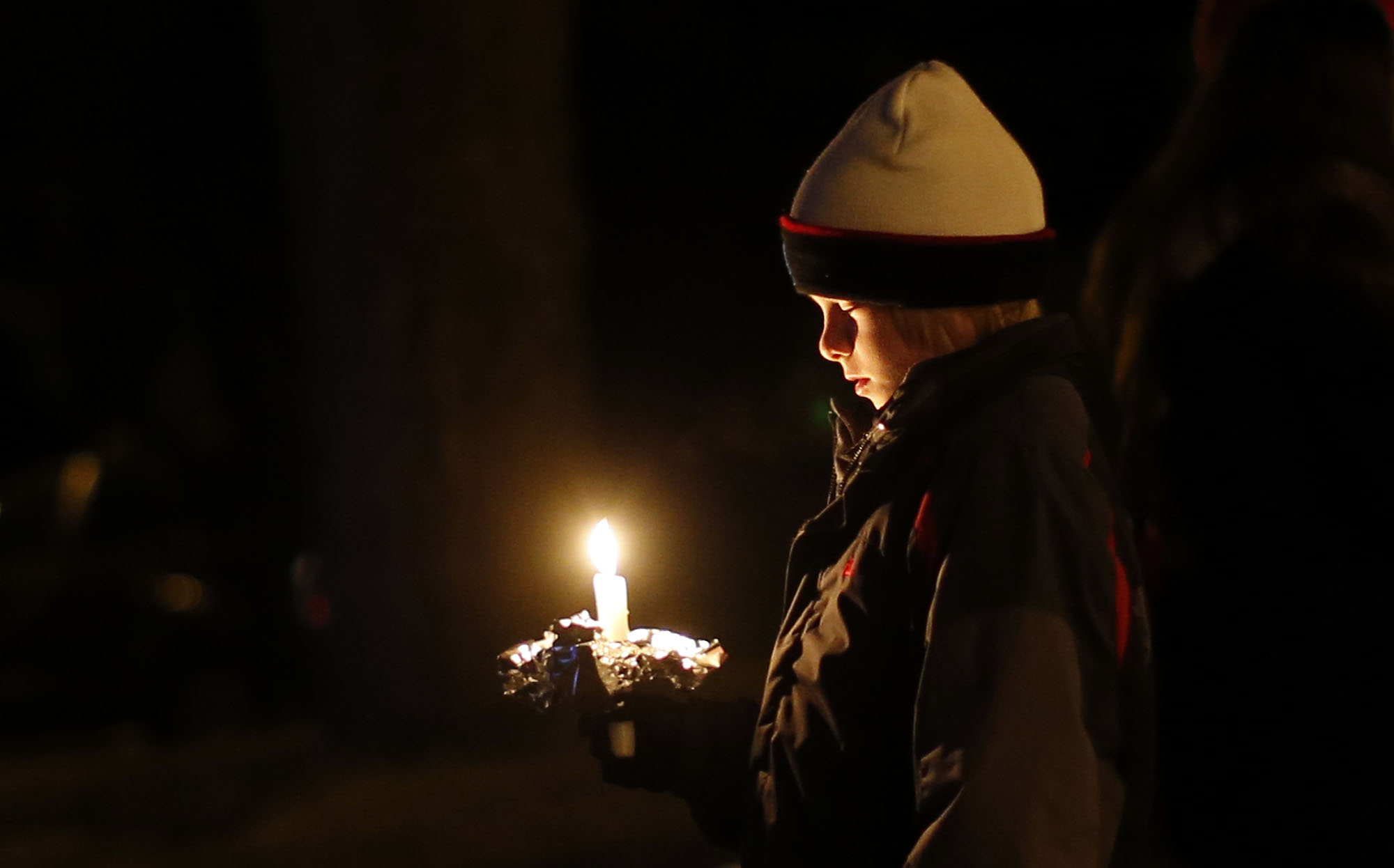
Katrina vanden Heuvel: End the NRA’s Stranglehold on Gun Legislation Katrina vanden Heuvel: End the NRA’s Stranglehold on Gun Legislation
Enough is enough: we must wrest control of public safety policy from gun manufacturers.
Jan 4, 2013 / Press Room
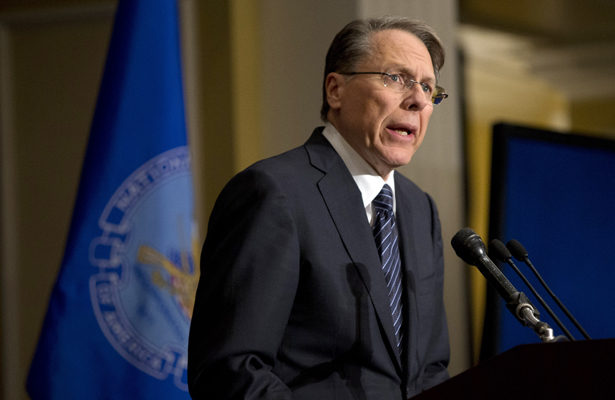
Gun Control and Congress Gun Control and Congress
Democrats introduced a gun control bill on the first day of the new Congress. But can they overcome the NRA?
Jan 2, 2013 / George Zornick
